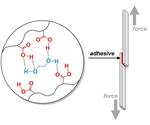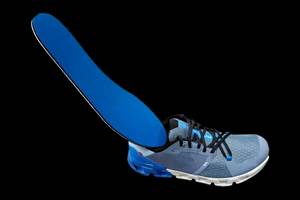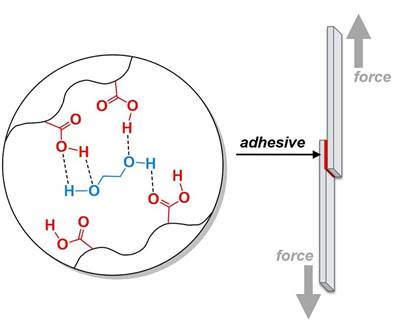Helicoid Industries releases preliminary results for biomimetic composite protective helmets
The Helicoid fiber-reinforced composites technology helped achieve a 25% weight reduction with enhanced toughness and crash protection, while simultaneously enabling a reduction in raw material consumption.

On June 11 Helicoid Industries Inc. (Indio, Calif., U.S.) announced preliminary weight reduction results for its protective motorcycle helmet prototypes, which incorporate Helicoid biomimetic fiber-reinforced composites. The company notes that, with the amount of composite materials used, the prototypes achieved up to a 25% weight reduction while maintaining industry safety ECE22.05 standards. Helicoid technology also reportedly reduces raw material consumption
According to Helicoid, reducing helmet weight is highly desirable both in high-end performance applications, such as competitive racing, as well as in conventional consumer goods. A lighter helmet results in lower payload, improved comfort and higher maneuverability. Reduced weight also lowers inertia forces in the event of a crash, which can decrease the severity of neck injury.
Overall, while weight reduction is desirable from both an economic and performance perspective, safety remains the paramount priority and crash resistance has to be proven against widely recognized standards, such as ECE (Economic Commission for Europe) and CPSC (Consumer Protect Safety Commission). More specifically, the helmet has to resist perforation while not exceeding a predetermined value of; 1) peak acceleration of the center of gravity (CG) of the head, and 2) the Head Injury Criterion (HIC). The latter is a combined measure of acceleration and impact duration.
The company’s Helicoid technology, which was applied to the protective helmet prototypes, is a bio-inspired fiber-reinforced composite which reportedly draws its features from a wide variety of microstructures found in nature which have evolved to protect against severe impacts and harsh environments. Amongst these, the "smasher" Mantis shrimp, said to be one of nature’s feistiest predators, evolved an internal architecture to protect the hammer-like club it uses to pulverize prey with incredible speed and force. The unique architecture, called a helicoid, protects the Mantis shrimp from self-inflicted damage as it delivers thousands of repeated impacts to hard-shelled prey. Such fiber architecture, Helicoid Industries says, holds the ability of diffusing damage at a sub-critical level preventing the structure from catastrophic failure. Therefore, the club can dissipate energy while preserving its structural integrity. Helicoid Industries brings this bio-inspired concept to the fiber-reinforced composites industry, targeting a wide range of products and applications where impact resistance often limits structural efficiency and lightweighting potential. Further, the company says its Helicoid technology also allows for a more efficient use of raw materials, leading to reduced waste and higher production volumes.
"The Helicoid technology has the potential to disrupt the composite protective helmet market,” says Dr. Lorenzo Mencattelli, director of research and development at Helicoid Industries Inc. “These preliminary results show that we can integrate Helicoid technology in thin-shell, fiber-reinforced structures, achieving significant margins of weight reduction while ensuring the helmet safety requirements. Additionally, by acting on the fiber architecture to steer damage and enhance impact protection, Helicoid technology can be quickly integrated into existing production lines currently in use without requiring any change in raw material sourcing or molding techniques. This offers a turnkey solution for short lead-time production and cost savings. Helicoid technology is certainly paving the way for a more efficient use of fiber-reinforced composites in sporting goods equipment.”
Currently, Helicoid Industries is working with several global-leading partners in the production of protective helmets that meet both peak acceleration and HIC requirements with a significant reduction of the amount of composites materials required for the shell of the helmet using the Helicoid technology. Impact tests have been performed on the helmet, at cold/hot temperatures and with impact against multiple types of surfaces, both flat and curb anvil.
Helicoid Industries and its partners continue the development of the next-generation, lightweight, impact-resistant, biomimetic motorcycle helmets. These encouraging results are said to be opening new avenues for different helmet-related opportunities where the mitigation of concussion-related injuries due to impacts is key. Helicoid Industries notes that it is already working with several global-leading companies for motorcycle, hockey, downhill skiing, and is now looking to engage in the development of football helmets.
Related Content
Running shoe insoles get a lift with thermoplastic fiberglass tapes
FlexSpring insoles take advantage of unidirectional, continuous fiberglass and thermoplastics to enable next-level performance for the everyday runner.
Read MoreGlass fiber-reinforced Akulon RePurposed recyclate enables Ahrend sustainable office chair
Envalior 30% glass fiber-reinforced Akulon RePurposed material helps Ahrend achieve lighter task chair with closed-loop value chain and reduced emissions.
Read MoreKraussMaffei and partners develop sustainable, safe and stylish children’s bike
The Lion Bike is a German-made, injection molded bicycle with 40% recycled carbon fibers with zero scrap and enabling 67% lower CO2 emissions during production.
Read MorePlant tour: Arris Composites, Berkeley, Calif., U.S.
The creator of Additive Molding is leveraging automation and thermoplastics to provide high-volume, high-quality, sustainable composites manufacturing services.
Read MoreRead Next
Researchers explore biomimetic approach for making adhesives tougher
A team from Purdue University takes inspiration from sea creatures to produce stronger adhesives with weaker bonds.
Read MoreVIDEO: High-volume processing for fiberglass components
Cannon Ergos, a company specializing in high-ton presses and equipment for composites fabrication and plastics processing, displayed automotive and industrial components at CAMX 2024.
Read More“Structured air” TPS safeguards composite structures
Powered by an 85% air/15% pure polyimide aerogel, Blueshift’s novel material system protects structures during transient thermal events from -200°C to beyond 2400°C for rockets, battery boxes and more.
Read More













.jpg;maxWidth=300;quality=90)









